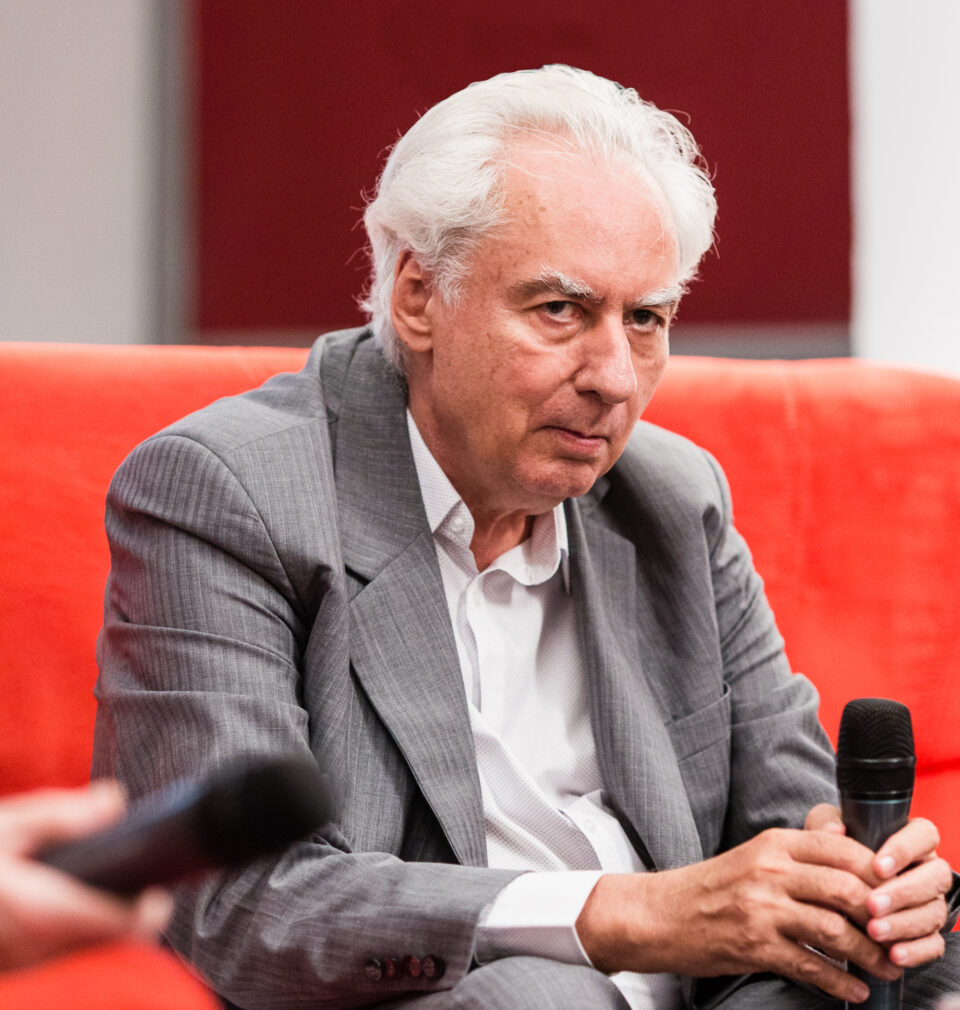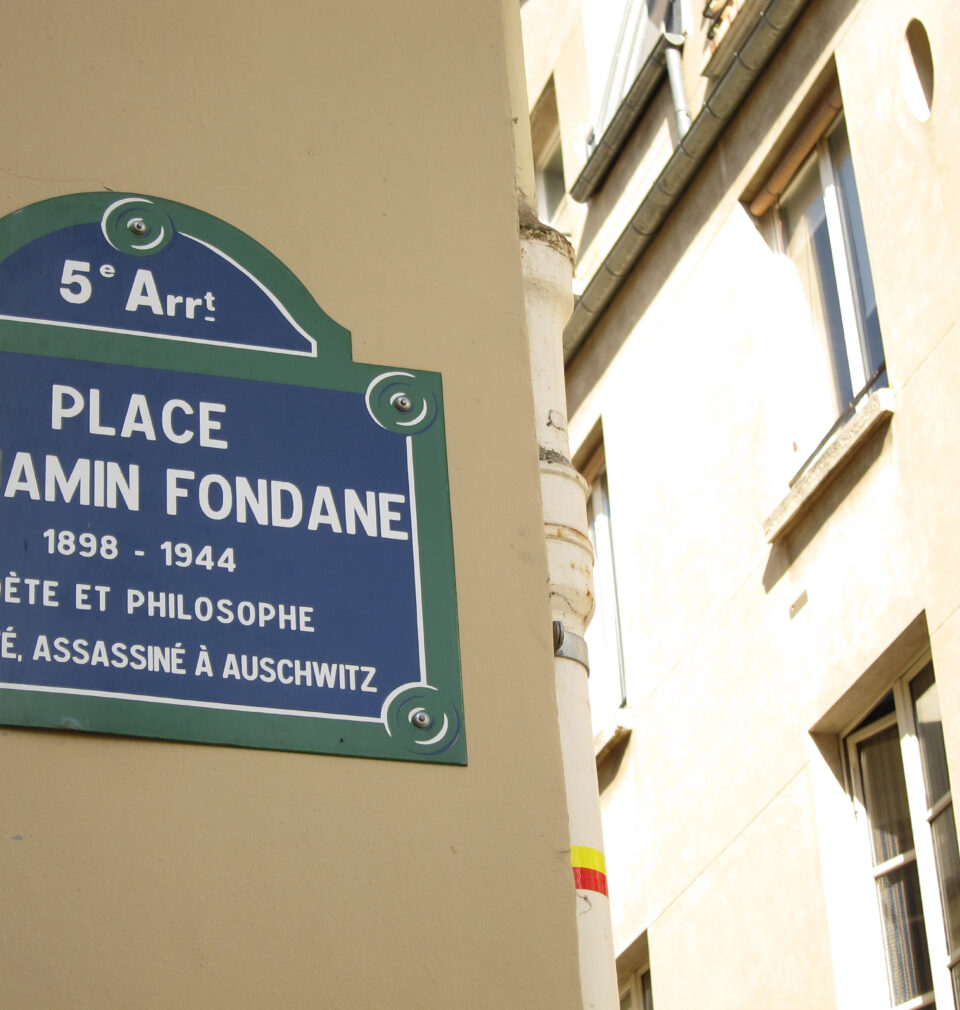
Rumunia - Romania - România
Why Is Romania Different?
Publication: 15 October 2021
TAGS FOR THE ARTICLE
TO THE LIST OF ARTICLESRomania has its faults that cannot be denied. However, these imperfections are not to be blamed on the country which the Romanians found themselves to inhabit. They are dependent on a historical situation, on certain consequences of historical evolution. The future, however, is open.
Cristian Pătrăşconiu: Your shortest book, De ce este România altfel? (Why is Romania different?) has all the attributes for winning the widest acclaim from the readers. It is already a bestseller. Why has it become so successful?
Lucian Boia: There’s nothing in this book that I didn’t discuss in my earlier works, specifically in Istorie si mit in constiinta romaneasca[1] (The Romanians. Self-awareness. Myths. History) and Romania. Borderland of Europe[2]. Perhaps my newest book is more widely-read and more controversial due to its conciseness and interpretative condensation.
C.P.: What kind of country is Romania?
L.B.: Romania is neither a Balkan country, nor a Central European one, nor even Eastern European. At the same time it is Balkan, Central European, and Eastern European at once!
Since ancient times it has also remained a borderland area, both in respect to Byzantium and to the states of Medieval Latin Europe. It is located on the outskirts of the great civilizations’ spheres and geopolitical orders. And this situation did not change either in post-medieval times or in the modern era at the time of the rise of the great empires. Borderland refers to an area that is somewhat isolated yet very open at the same time. This contrast between isolation and openness is what, in my opinion, characterises Romania – a land more isolated than others, yet, at the same time, more open than others.
C.P.: “It all began with impressive backwardness” – your essay starts with this very statement.
L.B.: Romanian duchies appeared around the 14th century, at the time when other countries could already boast their own history. Bulgaria and Serbia already had a several centuries-long history at that point. Hungary had been a regional empire since the year 1000. Poland was also a great power in this part of Europe as far as its territory was concerned. Admittedly, Romanian people existed before 1300 but the area they inhabited was barely organised and society was underdeveloped. The Romanian Medieval era, however strange it might sound, starts approximately in the 14th century. In the rest of Europe the Middle Ages were just coming to an end at that time. We were late to start, and this delay caused a gap that has not been easy to close.
On top of that, Romanian principalities were mostly rural in character. Romanian society consisted of peasants and boyars. As a result, cities and their inhabitants suffered from underdevelopment – in other words, two factors that pave the way for modernity. Life in the cities was rather frugal and their populations were mostly non-Romanian: Greeks, Armenians, Jews. So this is how yet another contrast was born – that between the rural and the urban, cosmopolitan Romania.
C.P.: The borderland location, backwardness, the long-term nature of the rural structure of the country and some kind of outdatedness as a result – would you add anything to this list of Romanian characteristics?
L.B.: A few striking examples of the “otherness” of Romania can be found in the communist period. Romania was a country that entered communism with the least number of communists but stepped out of this system having the largest number of them. It is a country that had most difficulty adjusting to communism, yet then found it most difficult to part with it.
At the beginning of the communist period in Romania, anti-nationalistic ideology is the most pronounced, but in its final stages it is radical forms of nationalism that are dominating. At some point a dynastic communism appeared, a type present only in North Korea. It was in Romania that the insane plan of tearing down villages and Orthodox churches was actually carried out. Let’s not forget that it is the only country in which communism ended as a result of a large-scale bloody revolution. Detailed data concerning Romanian Communism reveal substantial differences in relation to what communism meant in other countries – although there are also many common features.
Romania, in my opinion, chose the most specific path of communism – the one that apparently more and more was heading towards pure insanity in the last decade of the system. Thus, exactly at the time other communist countries started loosening the ropes of communism and were searching for new solutions.
Some claim that communism is the sole reason for the “malfunctioning” of Romania. But in my view, it is more important to answer the question why the Romanian Communism was “different” than other versions. Actually, the same question should be asked regarding the interwar period in Romania – much mythologised after 1989. That Romania was also “different” – with its huge (larger than anywhere else) contrasts between the upper and lower levels. On the one hand, we had the outstanding elite, on the other – the greatest number of illiterate in Europe. Bulgaria did not have the intellectual elite of such caliber at that time but compared to Romania, basic level literacy was somewhat higher in that country. Romania has the highest mortality rate but the highest birth rate at the same time. Both figures are signs of backwardness. It has to be added that Romania has the highest infant mortality rate.
C.P.: Is this abundance of differences also visible after 1989?
L.B.: It is, of course. I am under the impression that the Romanians once again have become a non-egalitarian society with the very pronounced lowest class. Throughout various stages of post-medieval as well as modern history, Romania not only differed noticeably from what we would call the “European average” but this country stands out most of all due to contrasts existing within its own society.
C.P.: When was the otherness of Romania most pronounced?
L.B.: It was probably in the 19th century when the country became modernised on a large scale within a very short time – over several decades! This is when the Romanian elites left the cultural spheres of the Orient to penetrate the Western sphere. One can see it with the naked eye, so to speak. Around 1800, the elite members dressed in the fashion of the Turks, they spoke Greek which was considered the language of high culture, and wrote in Romanian, although using Cyrillic. Half a century later we see them following European fashion styles (and nothing less but the latest fashion trends from Paris!), they speak French, which is considered the language of high culture and they write in Latin. This fascinating change occurred very fast and precisely within elite circles. Thus, it appears that Romanian society shows a strong tendency to shut itself away and resist change, yet at the same time it tends to adopt foreign models. This ease with which new models are adopted works both to society’s advantage and its disadvantage! We often are able to adopt cultural forms without any problem – however, there’s no content to these forms as it turns out that it is not that easy to assimilate someone’s cultural heritage.
C.P.: “Demythologisation” is thought to be one of the strongest characteristics of the Lucian Boia brand. You are perceived as a kind of myth debunker.
L.B.: As far as myth debunking goes: I have never aimed to do that, if only for the reason that I am aware that myths cannot get destroyed. Society needs their myths, every individual, every society has to believe in something. If one does not believe in anything, this means that they do not have any perspectives. I tried to interpret historical myths. Of course, in the process of interpreting them I might disturb them, in as much as their credibility might be challenged. My task as a historian was to merely bring them up for discussion.
C.P.: Some of your opponents believe that you yourself have just created a myth when speaking of Romania as being “different”.
L.B.: It is possible that I myself fall prey to mythologisation. I cannot exclude that at all. I truly believe in what I have written. Besides, Romanians have always liked to be different. Here’s a good example: once having inferiority complexes, the Romanians wanted to hide them behind a superiority complex, so they invoked their Romanian ancestors who used to rule the world. Thus, they started perceiving themselves as a great civilisation. They picked some sort of Romanian uniqueness – be it in a negative or a positive sense, or rather attempted to find something positively valorising as a counterbalance for the negative aspects of national mythology.
Is it really not our personal experience that Romania acts unlike others? And if we do feel so, who is to blame? Is it our previous government or its predecessors or should these inquiries reach deeper into history?
There is something else: the thesis that I put forward regards Romania in first place as opposed to the Romanians. I draw a distinction between Romania and Romanians. For the longest time it was tempting to use ethnic psychologies – to explain that Romanian history went this or that way because Romanians are such and such. I do not believe it! I do not believe in ethnic psychologies, which are unchanging. I focus on history – and I claim that Romanian history was “different” in a sense.
C.P.: The myth functions “beyond good and evil”, it is a sort of engine necessary for societies to develop their self-awareness. However, the characteristics of Romania that you have mentioned so far depict its otherness from a rather negative perspective. Why?
L.B.: It was not my intention to emphasise negative features. Negative elements are more present in my work in as much as it aims at explaining what does not work in Romania and what the historical roots of this malfunctioning are. Naturally, in the end, each negative characteristic has its positive counterpart. We have positive aspects of our negative features and negative aspects of positive features! Two sides of the same coin.
I do see the inferiority complex as a negative thing whose manifestations are strongly connected with the superiority complex – equally fictional yet having real consequences! Because of that, I think that Romanians should take care of their attitude to self.
There’s also something that is both a positive and negative feature at the same time. I mean the permeability which arises from our borderland location. Apart from that, Romanians form a society that is not rigorous – if that is positive or negative, I don’t know. Anyway, the West is more orderly.
C.P.: You also write about a historic curse. Is the uniqueness of Romania connected with fatalism?
L.B.: These are, naturally, figures of speech. I write about Romanian uniqueness not being a curse but a result of history. And I add, that sometimes it might mean the same. Romania has its faults that cannot be denied. However, these imperfections are not to be blamed on the country which the Romanians found themselves to inhabit. They are dependent on a historical situation, on certain consequences of historical evolution. The future, however, is open. Some accuse me of being pessimistic. So, pessimism, just like optimism cannot refer to the past or the present but solely to the future. And as far as future is concerned, I am neither a pessimist nor an optimist. I remain neutral as I have no idea how the future unfolds.
C.P.: Your adversaries point out your lack of comparative perspective
L.B.: At first I was warned not to compare Romania to Western Europe, which initially represented a different type of civilisation. Later on, however, such a comparison turns out to be not only justified but simply necessary as, in the process of modernisation, Romania drew from the West. In 1866 Romania adopted the Belgian constitution which was almost plagiarism, and that forces me to make comparisons. And when I do it, then I come to the conclusion that Belgium is one of the most developed countries in the West, whereas Romania is still, to a large extent, a rural country, with a patriarchal-paternalistic society. And yet Romania adopted that constitution. On the one hand, at some point Romania is known as the Belgium of the East, Bucharest – the Little Paris, and Timisoara – the Little Vienna. On the other, it is obvious that there are huge differences between the East and the West.
Thus, I ask my adversaries to what countries should Romania be compared? They’d answer – to the Republic of Moldova or Ukraine – so that we can make our country look more important!? But do we really have to resort to comparisons with countries of such feeble historical background. It would be more justified to draw comparisons to the Balkan states or Central European states, as Romania is located between these two spheres. Poland and Hungary could be a good point of reference. So how do we come out in this comparison? Hungary and Poland present themselves much better, both throughout the course of history and at various stages of their social, economic and cultural development. Do we want to compare resistance against communism in Poland and Romania? Do we want to see how soon we’re going to back down? But Poland is the country that truly resisted communism so there’s nothing more to be said … If we compare ourselves to the Balkan states in regards to history, it will turn out that in the early Middle Ages they were more developed than Romania as they lay closer to the area of advanced civilisation, that is Byzantium. Up until the 14th century, Bulgaria was much more advanced than Romania, which did not exist at all, and medieval culture was adopted in our country after the Bulgarian fashion. The cultural environment in medieval Romania is Bulgarian, if only because of the language which we call Old Church Slavonic. Then the Balkan states collapsed yielding to the Turks, so it is obvious that the modern era started there much later. (Greece, which otherwise played a specific role in the Ottoman Empire, was a similar case).
So we can compare one case after another or one country after another. I am under the impression that, compared to the Balkan states, Romania shows much deeper contrast between its elites and the lowest classes of society. The Balkan states could envy Romania its interwar intelligentsia whose representatives lived up to the European standards. The lowest class consists of the illiterate whose percentage is much higher in Romania than in the Balkans, as I have already mentioned. Thus, Romania is a country of contrasts, a non-egalitarian country. When compared to the Central European states in turn, Romania has fallen way behind, although it partially belongs to Central Europe.
I’d like to add that the fact that someone like Ceaușescu emerged and “took over” our country stems from the interwar period. Ceaușescu is a product of the Romanian interwar period. Let us not forget that!
C.P.: And the European Union? There is no escaping the comparison since Romania has joined the EU and NATO structures. Does the otherness of Romania have any influence on them, does it disturb or distort them in any way?
L.B.: To put it bluntly, Romania did not deserve to join the EU, which is a well-known fact to everyone in the West. It was admitted for geopolitical reasons, because of the situation in Europe. Finally, they all reached an agreement and admitted Romania to the EU. Now, the obstacles we have encountered regarding our entering the Schengen Zone – which by some are called malpractices – result from the fact that Romania was given too much trust when it entered the EU. Now, when our entering the Schengen zone has been put off – although it is somewhat unjust – we must pay for our previous shortcomings; both for the former and the current ones.
I think that our presence in European structures has affected the latter adversely, although “the old members” knew it very well and should have dealt with that problem at the time when Romania was admitted. Of course, Romania still falls way behind all other European countries, except for Bulgaria which, naturally, remains the only possible point of reference to us. We are ranked at the very end of all EU states. At the same time, if we take a global perspective, Bulgaria is placed behind Romania. However, what’s interesting, there are some areas where they are more successful. Bulgaria is a poorer country than Romania but they have a very well-organised tourist sector – something that Romanians failed at. Bulgaria is also a state that uses European funds better than Romania does. Romania has excellent conditions to develop its tourist industry but doesn’t do it, nor is it capable of absorbing European funds appropriately. Bulgaria is doing better than Romania although it seems that it should be doing worse. A country that is even poorer than us is doing better than us – isn’t that one of the arguments supporting our “otherness”?
Translated from the Polish by Agnieszka Rubka-Nimz
***
[1] Lucian Boia, Istorie si mit in constiinta romaneasca, București 2010.
[2] Lucian Boia, Romania. Borderland of Europe, London 2001.
Copyright © Herito 2020


